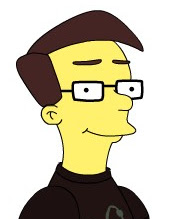Well, I just returned from a relaxing week at the beach with the extended family (well, my wife's side, anyway). My usual practice at such retreats is to actually "do" as little as possible and such physical inactivity naturally creates a sort of "time vacuum" which reading tends to fill most welcomely.
I'm not generally prone to reading fiction, except science fiction and fantasy, but this summer proved to be an exception with only one of the four books I read coming anywhere close to the science fiction/fantasy genre:
The Last Witchfinder by James Morrow. Morrow's books tend to have a philosophic undertext that he illustrates through the telling of his stories. For example, his "Jehovah trilogy" (Towing Jehovah, Blameless in Abbaddon, & The Eternal Footman) sets a story of the death of God and the disposition of his two-mile-long corpse against a backdrop consisting of the Problem of Evil, the foundation of morality, and the meaning of life. I highly recommend them as thoughtful and engaging explorations of this philosophic topic and just as highly recommend this, his latest work.
Here's the basic plot (from School Library Journal by way of Amazon): England in the late 17th century is an exciting–if dangerous–home for Jennet Stearne, a teen whose family is a microcosm of the country's philosophical and religious conflicts. Though she is enthralled by Isaac Newton's theories and her progressive Aunt Isobel's scientific experiments, she also takes pride in her father, Walter, who is a highly regarded professional witch-hunter. Jennet's filial piety and belief system are overturned abruptly when blameless Isobel is burned at the stake because Walter labels her a witch. The girl vows to prevent other unjust executions by using science to prove witchcraft nonexistent. Her stubborn quest goes on for decades, leading her into wild adventures that include being captured by pirates, becoming an adoptive Native American, witnessing the Salem witch craze, and carrying on an affair with the young Ben Franklin. Jennet and her companions dash through an energetic narrative that re-creates the period believably, thanks to the author's admirable linguistic and historical research. While the protagonist is an appealing character, the real star is Newton's Principia Mathematica, whose amusing commentary provides a new twist to notions about the power and endurance of the printed word.
Yes, it really is as interesting as it sounds and Morrow's ability to weave history and fantasy together in his engaging narrative style makes this book a real pleasure to read as well.
17 July, 2006
Subscribe to:
Posts (Atom)





